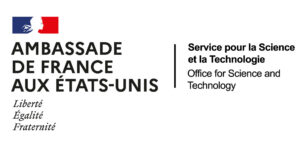washington dc
washington dc
washington dc
washington dc
washington dc
washington dc
washington dc
washington dc
la synapse
la synapse
la synapse
la synapse
la synapse
la synapse
la synapse
la synapse

History
Renowned for its cultural richness, Washington DC boasts more than 74 museums and is home to the Smithsonian Institution, a complex of 19 museums and 9 research centers, managed by the US federal government, whose missions are editorial, museographic, pedagogical and educational, and which offers free access to the museums in its network.
General Economy
As a result, the information sciences, defense and energy industries are particularly well developed here. The Dulles Technology Corridor, also known as Data Center Alley, a cluster of defense and technology companies in Northern Virginia, boasts the world’s largest concentration of data storage centers, including Alphabet (Google) and Amazon.
Science and Innovation
Other major universities in the region include the University of Pennsylvania in Philadelphia, part of the Ivy League network, the University of Pittsburgh, home to the University of Pittsburgh Medical Center, and Carnegie Mellon University, a national symbol of excellence in information sciences.
Academic and university support for innovation is evident in the structures and programs set up to support the emergence of startups. For example, the University of Maryland supports innovations in the energy transition through the Maryland Energy Innovation Accelerator and Mtech Ventures, and in the life sciences through the Fischell Institute. Another example is the Technology Innovation Center at Johns Hopkins University, which brings together researchers and healthcare professionals to provide digital solutions to medical challenges.
Accompaniment and Support
This particularity strongly guides the mission and operation of local incubators and accelerators. Thus, accelerators like CivStart, which supports technological innovations for government use, or Fed Tech, which supports tech startups with federal applications, attract entrepreneurs beyond the region.




